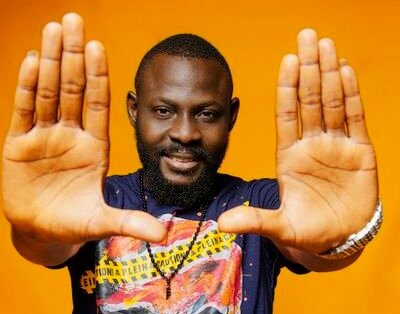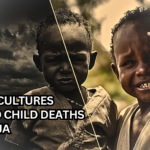Johnson E. Awolola is a professional film editor and film director who won the best Nigerian short film for ‘Simi’ at the Real-time International Festival 2020 and was also nominated for the Future Awards Africa prize for film 2020.
In the Nigeria movie industry, Awolola has worked in different capacities on movies like the critcally acclaimed Netflix’s ‘Oloture’ and ‘The Lost Café’. Jate Amata’s ‘Muna’ and Dimbo Atiya’s ‘Still falling’.
- Council Makes Case For Nigeria To Procure Two New Satellites
- Why COVID-19 Will Not Be Last Pandemic – UN Report
Working primarily with non-profits and media organizations, bringing the grit and unique perspectives from documentary production into his work, Awolola has also edited extensively for television, working on MNET’s ‘Halita’ and EbonyLife’s Sons of the Caliphate.
Over time, he has worked on projects for BBC Media Action, Cinema Kpatakpata, USAID, UKaid, Heinrich böll stifun, amongst other international donor agencies, Awolola has been able to hone his skills thus mastering the different aspects of film production and creation.
In this chat with Daily Trust, Awolola talks about his journey as a filmmaker.
Who is Johnson Awolola?
A cool Yoruba guy who is really passionate about creating, about life and telling stories. I love video games and I think I am what you can call the ‘life of the party’.
What influenced your journey as a filmmaker/editor?
I watch films from different parts of the world. Personally, my favorite films are Jacques Audiard’s ‘A prophet’ edited by Jacques Welfling. Films that provoke thoughts like Rungano Nyoni’s ‘I am not a witch’. The film is based on the experiences of many women across the African continent. To the question, what influenced my journey as a film maker – the drive to tell my own story and the urge to learn something new.
Highlighting the projects and films that contributed to your desire as a filmmaker, it’s quite obvious you are passionate about culture and events that challenge the mind. Can you tell us more about this?
Filmmaking is about storytelling but as a film maker, what kind of story would you want to tell? Who are your target audiences? Where would you want your film to be shown; at the cinema’s, on television or International Film Festivals? Personally, I want to see film with cultural diversity, I want to learn a thing or two about other people’s cultures by watching their films. The audience connects well with movies that are based on true events. For example, ‘Hotel Rwanda’ and ‘Oloture’. It is always good to be remembered for the type of films you made.
How is the Nigerian film industry doing so far in relation to telling our own unique cultural stories?
The industry has grown from what it used to be. A good amount of Nollywood filmmakers are now telling our stories and with the coming of Netflix, our stories will get even better.
With the number of projects credited to your portfolio, would you say it gets more challenging or easier to work on new projects?
Every film comes with its challenges but then again, the challenge is what gives you the experience. Editing is easy if you love the job. I was an offline editor and a colourist for Halita’s first season and the second season I became the supervising editor. It was easy for me because I used the first season to understand the workflow.
What has your experience been like directing?
Directing is no joke! When directing my short film (which won best Nigerian short film at the RTF 2020) there were lot of issues on set like the weather, the location I almost wanted to change the script on set because I was frustrated but from what I have learnt, improvising is not an option.
Would you be sticking to post production or directing?
Advancing in post-production for the growth of myself and the industry is key right now and as a young man, I love adventures and challenges. At the moment I am developing a Television series titled Labalaba (Dairy of a border) with Julius Monroe and Olutosin Joel. It is a boarding school story I will possibly produce the series with top industry producers and filmmakers like Kenneth Gyang, Rahama Sadau, Dimbo Atiya and Regina Oudalor are part of the project.
What does your creative process involve?
First, I read the script through to have a clear understanding of the story then I research about the project and then talk to the director and the writer to also understand the story from their point of view before proceeding to edit.
For how I pass my time, like I mentioned earlier I’m really just a chilled guy, I love video games and having fun with friends.
Any advice for aspiring creatives out there?
Believe in yourself and your art, keep learning, network, don’t be scared to try something new and do film for the culture. People will turn you down at some point in your life but remember the turn down is what will make your story interesting tomorrow.

 Join Daily Trust WhatsApp Community For Quick Access To News and Happenings Around You.
Join Daily Trust WhatsApp Community For Quick Access To News and Happenings Around You.


